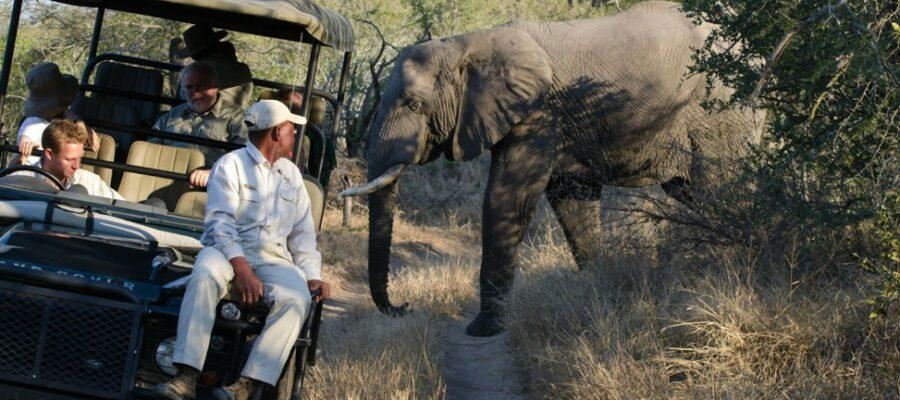London – Berlin – Cape Town: Where ancient baobabs rise from the plains and miombo woodlands stretch endlessly towards the horizon in the Iringa region of south-central Tanzania, you’ll find Ruaha National Park, the ultimate escape into the African bush. Resilient and largely undisturbed, Ruaha offers silence and a sense of intimacy with the wild, something you’ll rarely find at many other safari destinations. Lions roam in extraordinary numbers, elephants amble freely and you feel a connection to nature that has endured for ages. If you’re searching for a journey that feels rare and transformative, Ruaha deserves a place at the top of your travel wish list.
Unspoiled wilderness
What makes Ruaha so captivating is its sheer variety. The park sits at the meeting point of eastern and southern African ecosystems, which means landscapes shift dramatically as you move through them. From shady forests to golden plains and rugged cliffs, the scenery is alive with its own collection of wildlife.
At the heart of it all runs the Great Ruaha River, a lifeline that draws animals from every corner of the park. During the dry season, when water is scarce, the river becomes a focal point for all the park’s inhabitants. You can see elephants cooling off in the shallows, hippos wallowing in the pools, and antelope cautiously drinking while lions lurk nearby.
Wildlife lovers haven
Ruaha offers a sanctuary for some of Africa’s most iconic species. Almost 10% of the world’s lions live here, making it the largest lion stronghold on the planet. Leopards, cheetahs, and even the endangered African wild dog thrive in this environment, and the density of predators means dramatic interactions are often on full display.
But it’s not only about the big cats. The park is also home to thousands of elephants, giraffes that gracefully tower over the landscape, and great herds of zebra and antelope sweeping across the plains. For avid bird watchers, Ruaha is a paradise, boasting over 570 recorded species, from the colourful Lilac-breasted rollers to the unique Tanzanian red-billed hornbill, found nowhere else in the world.
Nearly two decades ago, the park expanded to include the Usangu Game Reserve and wetlands, cementing its status as Tanzania’s largest national park and an essential refuge for aquatic ecosystems. All together, these terrains make for a truly vibrant image of life.
Ruaha after dark
Safari in Ruaha doesn’t end when the sun goes down. Venture out on a night drive and you will discover an entirely different side of the wilderness. Experience hyenas cackling in the darkness, leopards that stalk quietly under the stars, and bush babies leaping between branches. With predators most active after dark, the chance to witness a nighttime hunt is as raw and thrilling as a safari gets.
A journey worth the travel
Ruaha might be known as remote, but it’s surprisingly easy to reach. A flight of just over two hours from Dar es Salaam lands you right in the heart of the park, and because fewer visitors make the journey, the reward is a safari that feels truly unspoiled. Far from the busier safari circuits, the park offers a quieter, more personal experience, one where you can take your time and soak in the stillness of the natural world around you.
Ubuyu, a Banyan Tree Escape
What makes the Ruaha experience even more unforgettable is Ubuyu, a Banyan Tree Escape. Tucked into the wilderness, Ubuyu blends luxury with an authentic connection to the land around it. After a day of adventure, you can return to a sanctuary where serenity and comfort meet, offering a place to slow down, reflect, and feel immersed in the spirit of Ruaha.
Secluded yet accessible, thrilling yet deeply restorative, Ruaha is a safari destination like no other. It’s a place where the wild still feels wild, where every encounter lingers long after you’ve returned home. Pair it with the warmth and elegance of Ubuyu, and you have a journey that’s not just extraordinary, but will leave a long lasting impact for years to come.
A Guide to Safe Driving on Safari .. Driving in the Nature Reserve and Game Farm https://t.co/1mHwCBZEEc #ArriveAlive #Safari [Photo credit Kgalagadi Sightings] pic.twitter.com/DfRu4THN4J
– Arrive Alive (@_ArriveAlive) December 27, 2024

